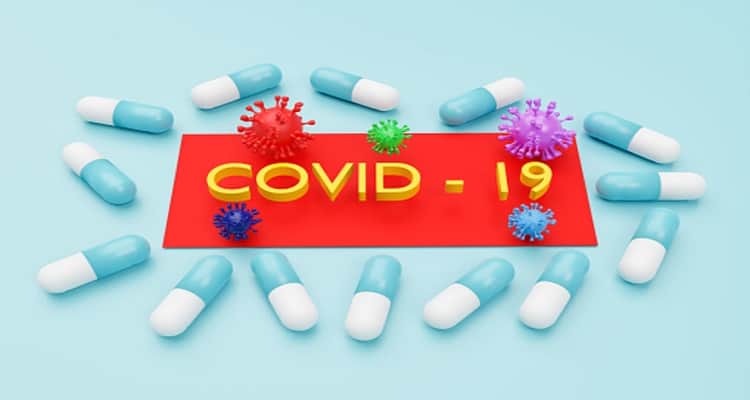IDRS Labs seeks emergency nod for plant-based drug against long COVID
A tripartite Memorandum of Agreement was signed among BARC, ACTREC-TMC and IDRS to develop Chlorophyllin against COVID-19 disease and other indications
Bhabha Atomic Research Centre (BARC), Advanced Centre for Treatment, Research and Education in Cancer – Tata Memorial Centre (ACTREC-TMC) and IDRS Labs (IDRS) yesterday announced the completion of phase-II clinical trial of Sodium Copper Chlorophyllin 750 mg tablets. The phase-II clinical trial was a multi-centre, randomised, open label, controlled trial of sodium-copper-chlorophyllin given along with treatment of physician’s choice versus treatment of physician’s choice in asymptomatic or mildly symptomatic patients with COVID-19, a statement from IDRS Labs notified.
A tripartite Memorandum of Agreement was signed among BARC, ACTREC-TMC and IDRS to develop Chlorophyllin against COVID-19 disease and other indications. The dossier is filed for Emergency Use Authorisation (EUA) for the treatment of COVID-19 by IDRS to Drug Controller General of India (DCGI) as stated by Shivkumar Madki, Co-founder and MD, IDRS Labs, added the statement.
It also mentioned that the phase-I clinical trial of Sodium Copper Chlorophyllin 750 mg tablets earlier conducted by IDRS Labs in healthy volunteers, indicated that it is safe and well-tolerated at daily dose of 3,000 mg. Sodium Copper Chlorophyllin 750 mg improved total white blood cell count and lymphocyte count in healthy human subjects and significantly reduced the blood biomarkers of oxidative stress and necrosis.
According to Dr Tapan Kumar Ghanty, Director, Bioscience Group, BARC Mumbai, the R&D work on Chlorophyllin was initiated at BARC more than two decades ago. Research on repurposing of chlorophyllin as an anti-viral drug against SARS-CoV-2 virus was started in March 2020. In-silico studies carried out at BARC indicated that Sodium Copper Chlorophyllin inhibits the Main Protease (MPro) of SARS-CoV-2 virus at sub-micromolar concentration, and it may also reduce entry of SARS-CoV-2 in the target cells. Experiments using in-vitro primary cells and in-vivo Hamster model demonstrated that Sodium Copper Chlorophyllin significantly inhibited SARS-CoV-2 virus multiplication and decreased the lung viral load by 10-fold. Sodium Copper Chlorophyllin also reduced interleukin-6 expression in lymphocytes from SARS-CoV-2 infected hamsters, the statement noted.
Dr Vikram Gota, Professor and Head of the Department (HoD), Clinical Pharmacology, ACTREC-Tata Memorial Centre, Navi Mumbai, explained that Sodium Copper Chlorophyllin 750 mg tablets has a unique mechanism of action against SARS-CoV-2 virus. Sodium Copper Chlorophyllin has potent anti-viral activity against SARS-CoV-2 and it can also ameliorate the immune dysregulation by suppressing pro-inflammatory cytokines and promoting regenerative/anti-inflammatory cytokines. Hence, it may offer a unique opportunity for treatment of COVID-19 disease progression and prevention/treatment of post-COVID sequalae. Post-COVID sequalae or long COVID remains an unmet medical need with approximately 20 per cent of the COVID-infected patients showing at least one symptom within three months after showing RT-PCR negativity in upper respiratory tract. Long COVID may be caused by persistent virus, uncleared viral RNA or viral antigens in the gut, immune dysregulation and circulating micro/nano-clots. There are no specific agents to treat or prevent long COVID, the statement said.
Dr Sudeep Gupta, Director, ACTREC – Navi Mumbai, who was instrumental in designing the phase-II clinical trial of Sodium Copper Chlorophyllin, observed that chlorophyllin’s ability to demonstrate anti-SARS-CoV-2 and immunomodulatory activity across model systems, combined with its excellent safety profile, makes it a possible candidate for prophylaxis against long COVID.
Shivkumar Madki stated that the completion of clinical development of Sodium Copper Chlorophyllin (co-developed with scientists from Department of Atomic Energy) was possible with the help of multiple agencies from the Government of India, including the ICMR’s National Institute of Virology, Pune, Translational Health Science and Technology Institute, Faridabad; National Chemical Laboratory, Pune and funding support from Department of Biotechnology (DBT).



Your Site is very nice